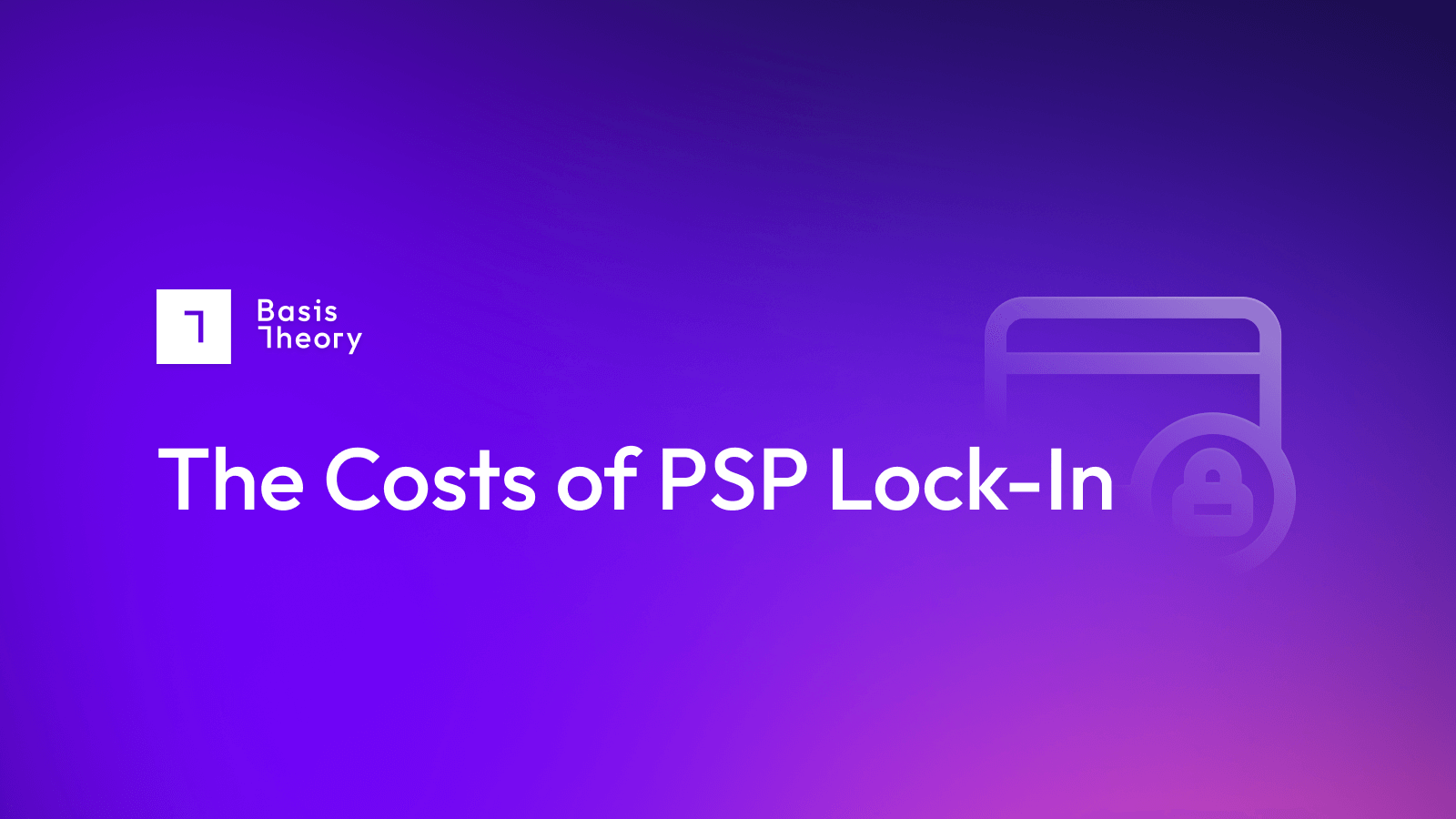The Costs of Payment Service Provider (PSP) Lock-In

What is Vendor Lock-in?
Vendor lock-in describes a situation where a customer becomes entirely dependent on a specific vendor for products or services, and switching to another vendor becomes prohibitively difficult or expensive.
In many cases, the merchant may not know they’ve fallen into a locked-in situation. Perhaps they’ve chosen a partner like a full-service payment service provider out of ease and simplicity.
These PSPs collect and store cardholder data on their own secure servers, meaning that the merchant does not have direct access to that information. If the merchant opts to switch out PSPs, it can be anywhere from expensive to impossible to get the full-service provider to share that information, meaning that their customers will have to re-enter what they have been using as stored accounts.
In some cases, the merchant is contractually locked-in, financially locked-in, or both. In the case of full-service PSPs, merchants may experience both. The merchant may be required to stick with the PSP for a predetermined time period (say, three years), and after that time may not be able to take their customer data with them without paying $100,000 or more to “unlock” the data. More disturbingly, they may find themselves technically locked-in, when the PSP owns access to customer data and declines to allow the merchant to transfer it elsewhere.
Why is PSP Lock-in an Issue?
It is pretty clear that one party benefits greatly from lock-in (the vendor) while the other party has significant disadvantages (the merchant). Such a significant imbalance in the partnership means that the merchant will encounter negative consequences should they try to find a new vendor, add in additional partners, or bring payment solutions in-house.
The drawbacks merchants experience with PSP lock-in often include:
- Reduced choice and flexibility: merchants lose the ability to explore new technologies, compare prices, or negotiate better deals from other vendors because they do not have any leverage in their current partnership.
- Stagnant innovation: payment partners have less incentive to innovate if they know their customers are unlikely to leave regardless of how “behind-the-times” their services become.
- Increased costs: vendors may increase costs at renewal, add on unfavorable terms, or reduce overall service quality, knowing their customers have almost no choice but to pay.
This lock-in becomes almost monopolistic in nature: the vendor can retain complete control over services, quality, and price, and customers are required to accept this - because leaving is almost impossible. Therefore, the costs of these unfavorable terms to the merchant can be intangible, such as the opportunity costs of not using a better-fitting solution; or financial, with expensive contracts and “data portability fees” that could be as high as millions of dollars to leave.
How to Avoid PSP Lock-in
The best way to avoid vendor lock-in is to choose flexible, programmable providers. From the beginning of a payment provider search, merchants should seek solutions that allow them to own their data, to work flexibly with other partners, and to leave on their own terms.
However, working with a less flexible provider may be unavoidable in some instances, and staying ahead of potential issues can ensure merchants have more power in the partnership from the very beginning.
A few ways merchants can avoid the drawbacks of vendor lock-in include:
- Conduct regular vendor comparisons: At least annually, evaluate alternative solutions and stay informed with market trends. Having other prices in hand can provide negotiating power and place pressure on the current payment provider.
- Negotiate exit clauses: Be sure to include a flexible termination clause and ensure it includes data portability to protect customer data in the event the merchant needs to switch providers.
- Own the data first: Instead of the headache of negotiating data portability with a provider, start off by owning customer data first, then only share that data post-collection with the payment provider. This gives the merchant a significant upper hand for negotiation and gives them complete freedom to switch providers whenever necessary.
Programmable Payment Vaults = No More Vendor Lock-in
Choosing a fully programmable vault can ensure that working with even the most rigid PSPs, merchants can have the upper hand. These vaults tie the entire payment stack together, securely and seamlessly, while also giving merchants complete control of their payment data.
Working with a programmable payments vault like Basis Theory allows merchants to:
- Create engaging ecommerce flows
- Connect with any partner
- Effortlessly manage compliance
- Keep control of payments data
Merchants can stand up a vault in as little as 5 minutes, and begin migrating card data, connecting with partners, and controlling payment flows. And, because we strongly believe in vendor flexibility, we make it easy for merchants to migrate their data off Basis Theory.
.png?width=365&height=122&name=BTLogo%20(1).png)



